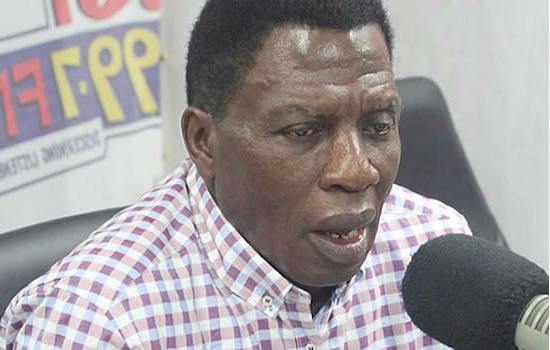Paul Avuyi
A retired Superintendent of Police has taken a swipe at the phenomenon where contracts are given to retiring officers in the Police Service adding that “this has suffered severe criticisms, anger, frustration and bitterness among the top hierarchy”.
Mr. Paul Avuyi was a thorn in the Police Administration until his retirement some years ago. He often expressed disapproval about things he found anomalous earning him notoriety within police officialdom. He suffered punitive transfers and an eventual retirement.
In a statement on the subject and the appointment of the IGP, he said “the worrying trend could be attributed to the fact that the obsolete, archaic and all-most forgotten Ghana Police Service Act 350/1970 has no well-defined provisions which clearly spell out the eligibility criteria for appointment of the IGP and award of contract/extension of service for officers. This is a big flaw which must urgently engage the attention of the Police Council”.
Taking a trip down memory lane, Mr. Avuyi said “when Mr. C. K. Dewornu (IGP rtd.) attained the then retiring age of 55 years in December 1989, the following were the Commissioners of Police at post:
- Ernest Owusu-Poku – promoted Commissioner – 7/4/87
- G. S. Aggor – promoted Commissioner – 1/1/90
- S. E. Asare – promoted Commissioner – 23/11/90
The expectation among sections of officers was that the most senior one among them was likely to be selected and appointed to replace him. Contrary to their expectations, Mr. J. Y. A. Kwofie who was promoted Deputy Commissioner on 1st December, 1985, was appointed the IGP on 1st January, 1990, above them. In 1996, Mr. Peter Nanfuri was also elevated above these three Senior Commissioners to replace Mr. Kwofie”.
Mr. Owusu-Poku he said took over from his junior Mr. Peter Nanfuri in March 2001.
Continuing he recalled “in July 2002, Mr. S. Owusu-Nsiah was similarly appointed IGP when the following Senior Deputy Commissioners, who were senior to him, were at post:-
- Kwasi Nkansah (currently a member of the Police Council)
- W. Sam-Awortwi
- Jane Donkor”.
“The three were all promoted Deputy Commissioners on 1st December, 1985, whilst Mr. Owusu-Nsiah was promoted Assistant Commissioner on 1st January, 1989. Soon after Mr. Owusu-Nsiah’s appointment as IGP, Mrs. E. Mills-Robertson was later in the same year, appointed the 1st Deputy Inspector-General of Police above the aforementioned officers and few others who were senior to her,” he continued.
In the light of the foregone, he asked that the Police Council take another look at the eligibility criteria used in determining the top appointments in the Service.
Tongues he said are wagging among officers and questions being asked as to why after the IGP’s appointment to date no other officer has been appointed as the Deputy IGP until a few weeks ago.
Furthermore, he went on “IGPs have, since Ghana’s independence, been appointed without any specific term/tenure of office. A close analysis of such appointments since the time of the first Ghanaian head of the Service, Mr. ERT Madjitey (of blessed memory) showed that some of them enjoyed longer periods in office; others had shorter periods. Few went home before attaining the compulsory retiring age. Mr. P. K. Acheampong and Mrs. Elizabeth Mills-Robertson are the recent examples.”
Since 2002, some officers in contention had their profiles published in some newspapers to market themselves as they lobby silently, Mr. Avuyi said.
The manner in which appointments, promotions and contracts have been done over the years he explained “tended to demoralize officers, destroy the esprit-de-corps, create an atmosphere of apathy, deep-seated anger and bitterness, frustration and infighting among officers.”
A framework that should among other things provide for advertising the IGP vacancy, short-listing of qualified applicants, interviews and selection of the most suitable one for parliamentary vetting and approval before his/her appointment by the President in consultation with the Council of State would be in the right direction, he said.
By A.R. Gomda


